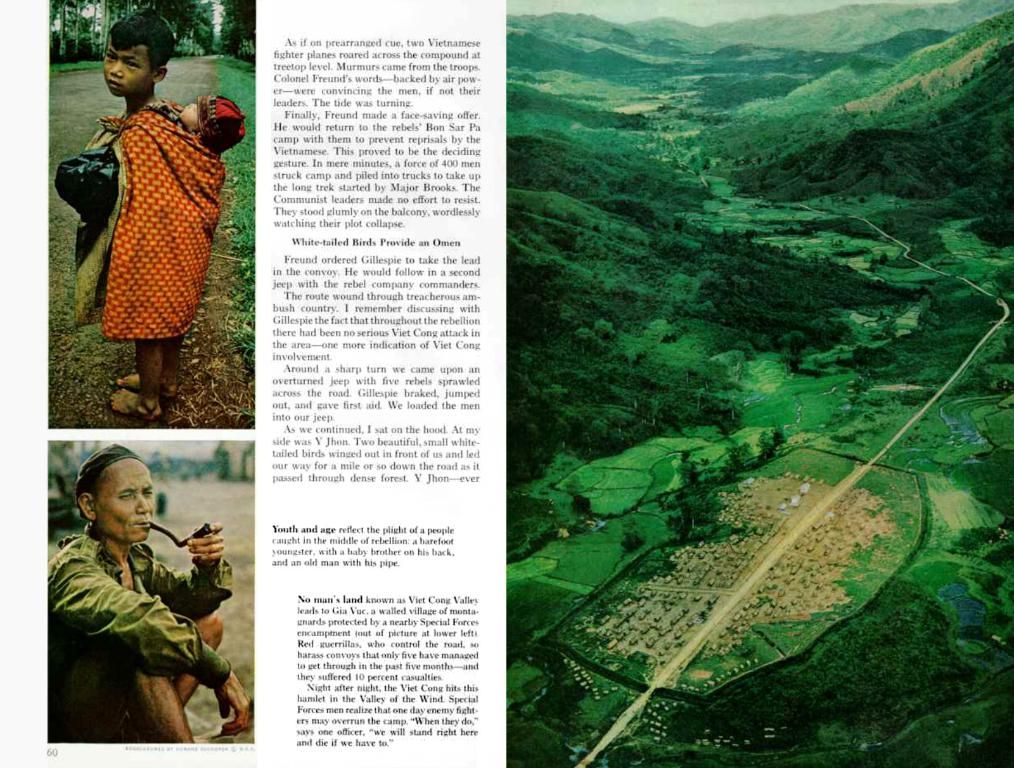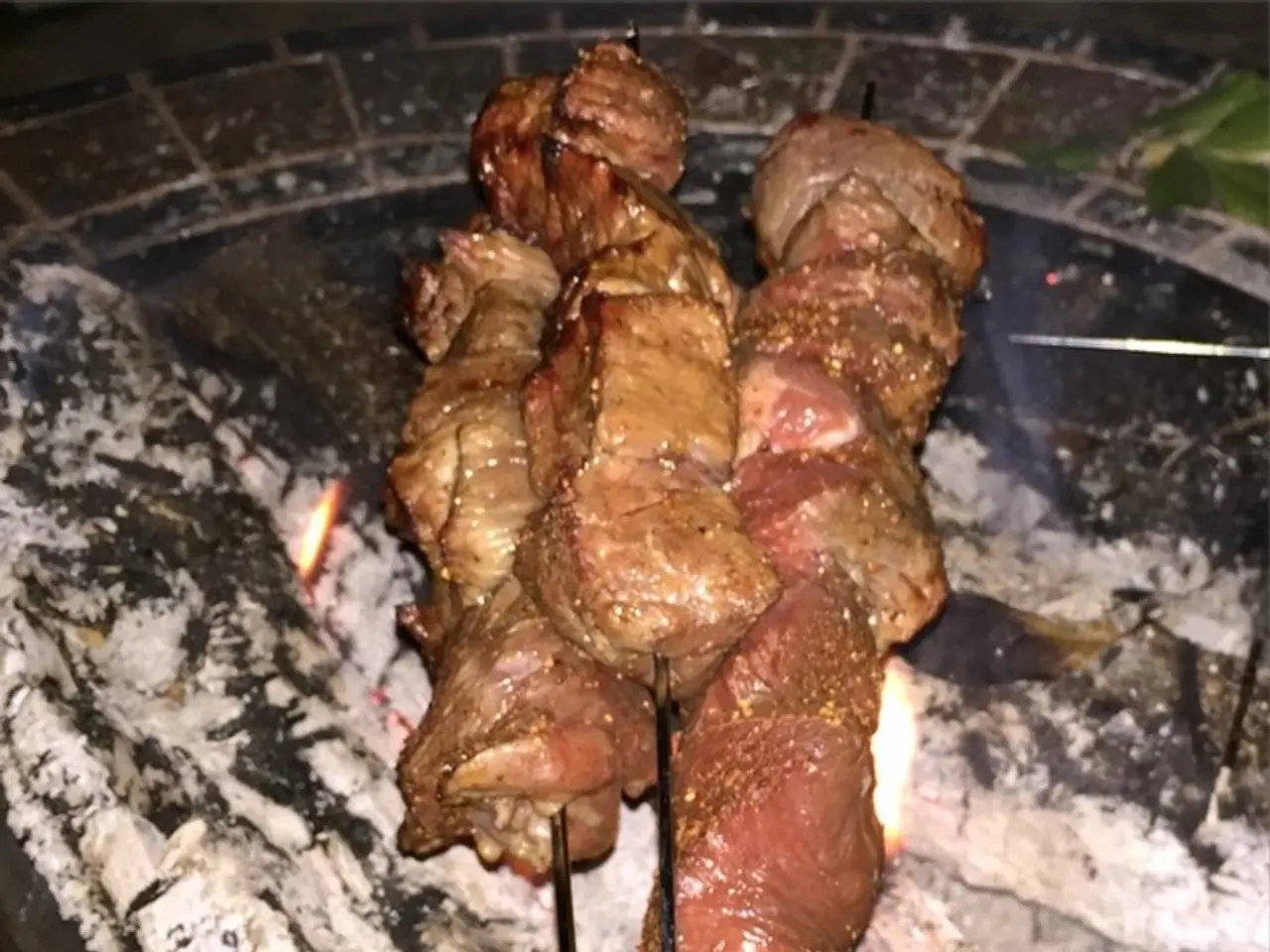Villages in North Kazakhstan may face quarantine due to the bird flu outbreak.
In the North Kazakhstan region, the looming threat of bird flu has forced officials to consider quarantining an additional six villages, following an outbreak in 11 previously populated areas. This drastic measure was taken due to an outbreak in 7 districts, as reported by Almaty.tv.
Yakov resident, Salgarin, who's been a goose farmer for five years, experienced a catastrophic loss of 870 geese, amounting to a staggering 2 million tenge. With hopes pinned on state compensation, Salgarin expresses confusion over the process, claiming, "We planned to sell the birds for 6-7 million tenge. I heard we'll get compensation. They say we'll get money at market price for each bird. But no one explained it fully. To be honest, we didn't understand anything."
Pensioner Nina Belopukhova, also from the affected village, lost 83 of her 100 geese, bought with her modest pension. Belopukhova shares her distress, "Those are the last ones left. The strongest, I guess. Around 80 or 90 died. When they started dying, we disposed of them ourselves because no one said anything. We didn't even know what was happening."
As both domestic and wild birds succumb to the epidemic in the region, veterinarians are struggling to incinerate the dead geese, chickens, and ducks. communities fear the impending closure of 6 more villages.
Berik Aljanov, head of the Veterinary Department of North Kazakhstan region, offers reassurance, "Compensation is paid by the decision of the commission for each bird at market price. So far, about 600,000 birds have been vaccinated this year. Today, 873,000 doses of vaccine were received from the National Fund. Our veterinarians have started vaccinating birds in the districts."
Concerns over human transmission remain low, as virologists affirm bird flu does not typically infect humans. However, relaxation of vigilance could potentially lead to the emergence of dangerous diseases from the combined genes of different virus species.
When it comes to farmers' compensation, specific information for the North Kazakhstan region is scant. While government agencies have historically offered support, the criteria and processes for compensation in this particular situation are yet to be clarified. To find detailed information, consult local government resources, agricultural departments, or national agricultural ministries.
- Salgarin, a goose farmer in Yakov, has faced a substantial loss of 870 geese due to the bird flu outbreak.
- The loss for Salgarin amounts to approximately 2 million tenge, a significant sum.
- Salgarin is hopeful for state compensation but is confused about the process.
- Belopukhova, another affected resident, has lost 83 geese from her flock.
- Belopukhova's remaining geese are the strongest, with around 80 or 90 already dead.
- The communities fear the possible closure of six more villages due to the outbreak.
- Veterinarians are finding it challenging to incinerate the dead birds.
- Aljanov, head of the Veterinary Department, assures compensation will be paid at market price for each bird.
- About 600,000 birds have been vaccinated this year in the region.
- The National Fund has provided 873,000 doses of vaccine for vaccination.
- The potential threat of human transmission remains low, according to virologists.
- Relaxation in vigilance could lead to the emergence of dangerous diseases from the combined genes of various virus species.
- Information regarding the compensation process for the North Kazakhstan region is limited.
- Historically, government agencies have offered support, but the criteria and processes for this situation are unclear.
- To obtain detailed information, citizens are advised to consult local government resources, agricultural departments, or national agricultural ministries.
- The outbreak has resulted in the death of both domestic and wild birds in the region.
- Science and medical-conditions related to the bird flu are of paramount importance in controlling the epidemic.
- Chronic diseases like cancer and respiratory conditions could be exacerbated by the bird flu.
- Digestive-health, eye-health, hearing, health-and-wellness, fitness-and-exercise, sexual-health, and autoimmune-disorders are crucial areas to monitor as well.
- Climate-change may affect the spread of the bird flu and other diseases.
- Mental-health is an essential aspect for people dealing with domestic loss and other stressors related to the outbreak.
- Mens-health, skin-care, therapies-and-treatments, nutrition, aging, and womens-health are also vital areas to consider during these challenging times.
- Parenting, weight-management, and cardiovascular-health become more crucial for maintaining the well-being of families affected by the bird flu.
- The outbreak has significant implications for the industry, including agriculture and veterinary industries.
- Medecare and finance are crucial considerations for affected families, especially for those who have lost their primary source of income.
- CBD, a product with potential health benefits, may offer relief for some symptoms related to the bird flu.
- Neurological-disorders could also be linked to the bird flu, necessitating further research and study.
- Environmental-science plays a pivotal role in understanding the impact of the bird flu on ecosystems and preventing its spread.
- The economy, businesses, and personal-finance may be affected by the bird flu outbreak.
- Gadgets, data-and-cloud-computing, technology, artificial-intelligence, and relationships are crucial aspects of our lifestyle that can help us cope with the outbreak.
- Fashion-and-beauty, food-and-drink, investing, wealth-management, home-and-garden, and environmental-issues are interconnected with the overall impact of the bird flu outbreak.








